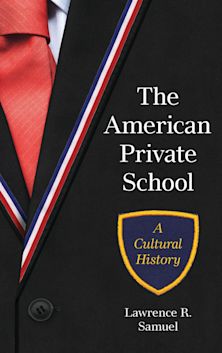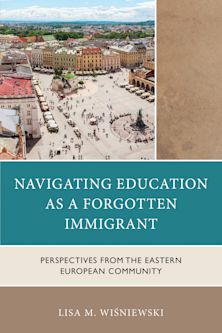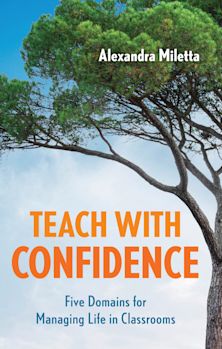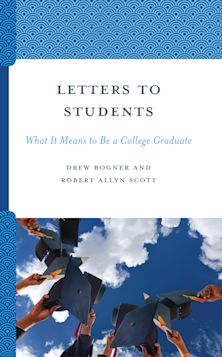- Home
- ACADEMIC
- Education
- Education - Other
- Teaching Literacy in Urban Schools
Teaching Literacy in Urban Schools
Lessons from the Field
Teaching Literacy in Urban Schools
Lessons from the Field
You must sign in to add this item to your wishlist. Please sign in or create an account
Description
Today’s public schools represent greater student diversity than ever before in the history of the United States, yet pedagogical approaches as mandated by state education agencies and school districts superimpose mainstream curricula and instructional practices which ultimately disadvantage the academic outcomes of the majority minority: African American and Hispanic/Latino(a) students. Unfortunately, national report findings also heighten the educational crisis that exists for Black and Brown children with regard to reading and writing achievement. As a result, there is need to deeply explore the relationship between Black and Brown student literacy achievement and educational policy, teacher education program, curriculum, and assessment.
This book seeks to provide some practical insights guided by conceptual and contextual knowledge by understanding how to teach urban African American and Hispanic/Latino(a) students by discussing culturally appropriate instructional strategies that have demonstrated success among African American and Hispanic/Latino(a) students. This book will showcase successful models for teaching literacy to urban student through a discussion of topics that include: (1) increasing literacy achievement and motivation, (2) multicultural literacy practices, and (3) early and elementary literacy instruction.
Table of Contents
Introduction
Part I: The Classroom as Community: Academic, Social, and Cultural Needs for Urban Learners
Chapter 1: Still Keepers of the Dream: Lessons Learned from Elementary Literacy Educators
Meredith Dana and Lakia M. Scott
Chapter 2: Not So Elementary: Preservice Teachers Reflect on Teaching Urban Middle School Struggling Readers
Lakia M. Scott and Randy Wood
Chapter 3: The Power of the Pen: Writing with Spoken Word Poetry
Lauren Bagwell, Karon LeCompte, and Brooke Blevins
Chapter 4: Lovin the Skin I’m In: Advocating for “stories” via Young Adult Literature
Mona Choucair
Part II: Strategies, Approaches, and Models for Increasing Literacy Motivation and Achievement
Chapter 5: Aesthetic Approaches for Teaching Writing to Upper Elementary Students
Amanda Gardner and Evan Ditmore
Chapter 6: The 3CO Approach to Writing Instruction
Nancy P. Gallavan and Gloria L. Loring
Chapter 7: Supporting Emergent Learners in Their Beginning Steps Toward Literacy
Margaret Thomson
Chapter 8: Using Picture Books to Engage Beginning Readers and Writers in Visual Literacy
Jacqueline Easley
About the Editors
About the Contributors
Index
Product details
| Published | 02 Mar 2018 |
|---|---|
| Format | Ebook (Epub & Mobi) |
| Edition | 1st |
| Extent | 150 |
| ISBN | 9781475839340 |
| Imprint | Rowman & Littlefield Publishers |
| Illustrations | 2 b/w illustrations; 1 b/w photos; 5 tables; 5 textboxes |
| Publisher | Bloomsbury Publishing |
About the contributors
Reviews
-
Teaching Literacy in Urban Schools is a book that stands on the academic pillars of culturally relevant pedagogy and comprehensive literary practices. Purdum-Cassidy and Scott have compiled resourceful chapters that provide both research and practical information on effective literacy practices, activities, and experiences for preservice teachers as well as urban teachers and their students. The innovative way in which Teaching Literacy in Urban Schools speaks to both teachers and student teachers, across elementary, middle, and high school as well as how it has interwoven traditional literacy topics (e.g. phonics, illustration analysis, emergent writing, and comprehension) with nontraditional but culturally relevant literacy topics (writing and performing spoken word and building confidence in teaching literacy) makes this work timely, necessary, but most importantly useful. Though Teaching Literacy in Urban Schools provides practical solutions for effective literacy instruction, the chapters are also harmoniously grounded in research which makes this book uniquely designed for both K-12 educators and the college classroom.
Stephen D. Hancock, PhD, associate professor of Multicultural Education, assistant director, The Urban Education Collaborative, University of North Carolina Charlotte
-
Teaching Literacy in Urban Schools is an excellent resource for novice and experienced teachers! The authors effortlessly merge theory, research, and practice, while also interweaving critical perspectives in urban education. What is most impressive about Teaching Literacy in Urban Schools is the practicality of scholarship. The book provides tangible strategies for increasing literacy motivation and achievement, which is paramount for the future of education. This is a seminal collection of work.
Marcia J. Watson-Vandiver PhD, associate professor, Towson University
-
Teaching Literacy in Urban Schools is a must read for all teachers in urbanized settings who desire to be culturally relevant and affirming. The authors combine historical knowledge with modern research to address the need for enhanced literacy development across grades K-12.
Brandon L. Fox, PhD, associate professor, Stephen F. Austin State University



































